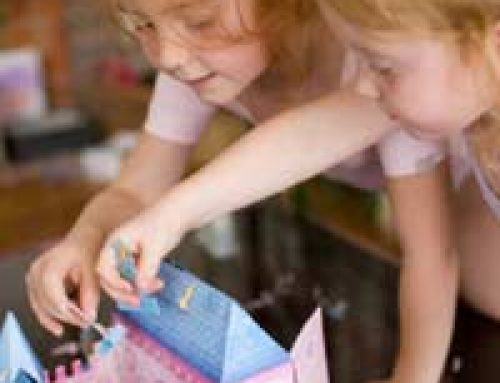
When you become a parent, there’s an expectation that you’ll know how to do everything, but for some parents it doesn’t all come naturally. One area where some people often struggle is with learning to play with their child.
If you’re a born player and child at heart, then it may sound odd that some people aren’t so good at playing with their child. But for those who are new parents, haven’t had much previous contact with children and have long since grown up from their carefree childhood days, it can actually be quite daunting to learn to play again.
For some, it’s the worry that they may not know how to play ‘properly’ with their child, or that their child may not enjoy their attempts at playing with them. Others feel embarrassed to get down on the floor and play, or to start spouting baby talk when playing with their baby. All of these are valid concerns, but both babies and children thrive on play, plus it’s a great way of bonding and interacting with your child, so trying to get over the issues would help both you and them.
On the subject of as baby talk, although it can feel uncomfortable for some parents, babies do respond well to it and it encourages them to have a go and play with you. If you just sit silently with a baby and don’t talk as you play, you can see how it could be boring for them.
Shedding Inhibitions and Getting to Grips With Play
In order to successfully play with your child you need to adapt to your new playing role, shed any inhibitions you have and be prepared to do whatever you can to make play and enjoyable part of life for your child.
Playing doesn’t have to be hard work. In fact, it can be, in part, what you want it to be – or how your child wants it. If you’ve recently become a parent for the first time and are adapting to life with a young baby or toddler, play doesn’t have to be hard work. Your baby or toddler will appreciate you getting down on the floor and playing with him – toys such as rattles, soft toys and teething rings are all welcomed by young children and it’s never too early to read them stories, even if all they want to do is chew the book!
Smiling, laughing and playing peek-a-boo are all very simple, but can be classified as play. Interacting with your child in this way is important, as it aids the bonding process, but also has vital early educational benefits too. In the long run, it will encourage communication, increase your child’s knowledge of language and help them become confident and happy about interacting and playing.
Where older children are concerned, play can take many forms. You could be involved with creative play, such as making Lego creations, doing painting or crayon drawings, or building towers (to subsequently knock down!). You could play outside together, kicking a ball around the garden or practicing catching and throwing skills. Or you could play computer or video games together, join in with fantasy and role playing, such as playing shop, or make a den with your child.
Whatever your child’s interests or hobbies, you can join in and create play opportunities. Play doesn’t have to be hard work and it doesn’t have to be embarrassing to let your hair down, relax and drop down to their level for a while. It will do you both good and you’ll both gain lots of benefits from it, so give playing with your child a go. You won’t regret it.





Leave A Comment